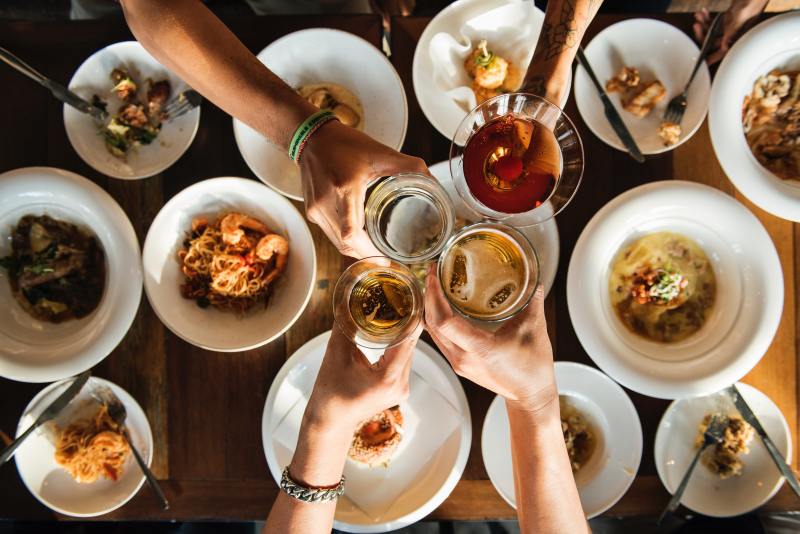Let’s talk freshman 15. Let’s talk fat jokes and eating chicken fingers at 2 a.m. I knew about these things before coming to college, but I was hoping they wouldn’t be as prominent in my current experience as they are. Part of me dreamed that being in a larger environment would mean seeing more people with my body type: wide, curvy, big-boned — however you want to say it. But I haven’t. Most of the people in my dorm have slim figures and can indulge in whatever they want without drawing criticism or condescension. I’m happy they have that luxury, but I, on the other hand, do not. And I don’t think that’s something a lot of people understand.
No one thinks to warn you about the large social role food plays in college life; grabbing shakes at The Axe and Palm at midnight or going to Late Nite for fries or eating dessert after every dinner in the dining halls. People bond over food — especially eating junk late at night after a party, bonding over ice cream or greasy burgers while you discuss the highlights and lowlights of Week 5. Being heavy, at least for me, means I am constantly aware of what I’m putting into my body. I don’t make freshman 15 jokes because I don’t think it’s funny to feel gross about myself. It’s a daily battle not to feel that way — it’s not just something that happens after I drink too much beer or get the munchies one too many times.
No one thinks to warn you about this issue because that’s such a niche problem. I have met maybe one person who can relate to being the biggest person in the room. Having had that fact pointed out to me in other environments, I am weary of attempting to defend my body shape while simultaneously trying to “improve” it.
I believe in treating myself and everything in moderation, blah blah blah, yet I am also keenly aware of my weight and what it means to me to be heavy in college. Or, in more accurate terms, what it means to be heavy before college and then to come to Stanford and try to make better decisions for my body than I did back home. My struggles with weight and body image didn’t just disappear the second my plane left Boston. I firmly believe in body positivity, a concept I try to employ in my day-to-day life, but at times it can be hard to feel good about my figure as I walk around this campus. It’s difficult to see myself in others and to feel understood at that level. When you don’t see anyone who looks like you receiving appreciation or practicing self love, it’s hard to imagine those things for yourself.
Most people don’t recognize how difficult it can be for someone who is self-conscious and clearly a different body type than the norm to navigate the college setting. No one explicitly says you have to eat junk food and take naps at 3 p.m. But they notice when you don’t get dessert or turn down going on an ice cream run. People notice when you’re the only one not wearing a crop top and ripped skinny jeans to football games. They also notice when you do participate in those things, and comments can turn from questioning to negative.
Not to fit in the literal outline of a “typical” body does not disqualify self-love or self-improvement, in any sense of the phrases. It’s just something this community does not really recognize nor embrace.
Contact Nina Knight at ngknight ‘at’ stanford.edu.
